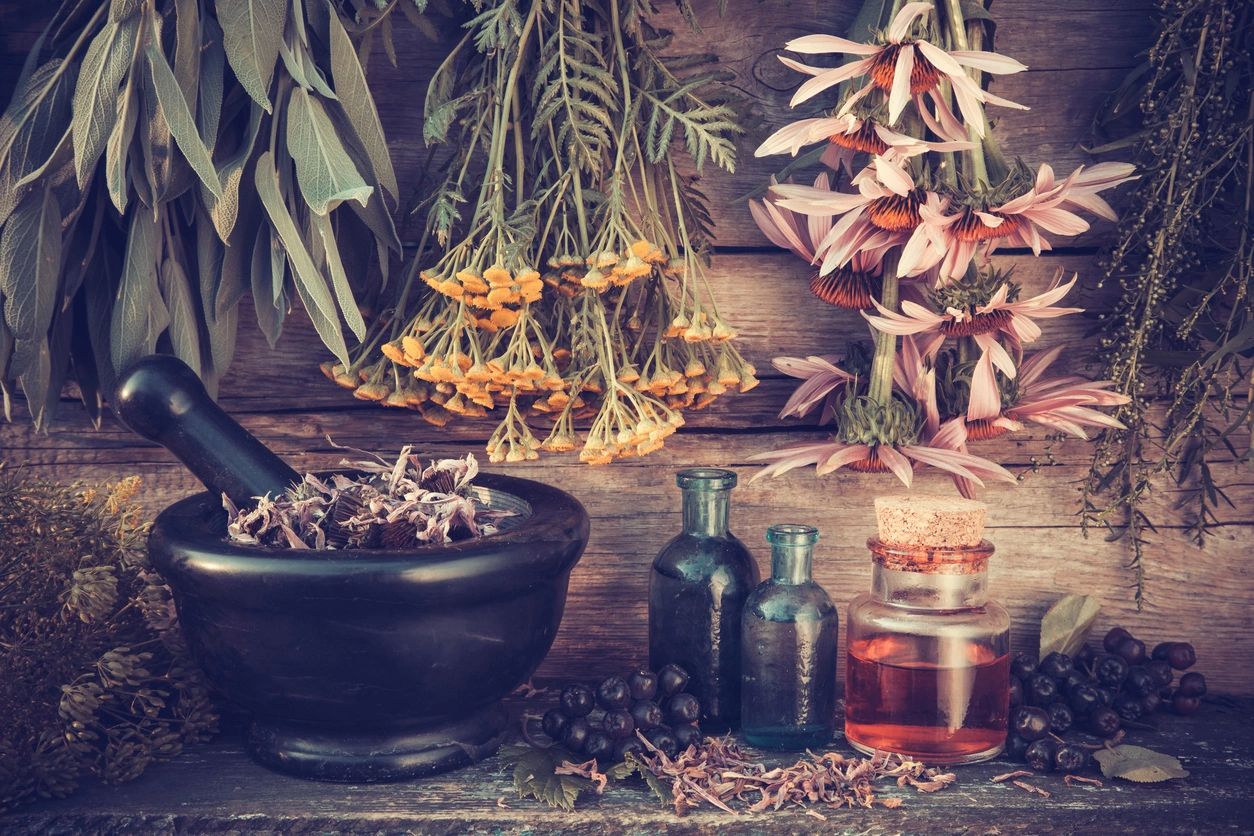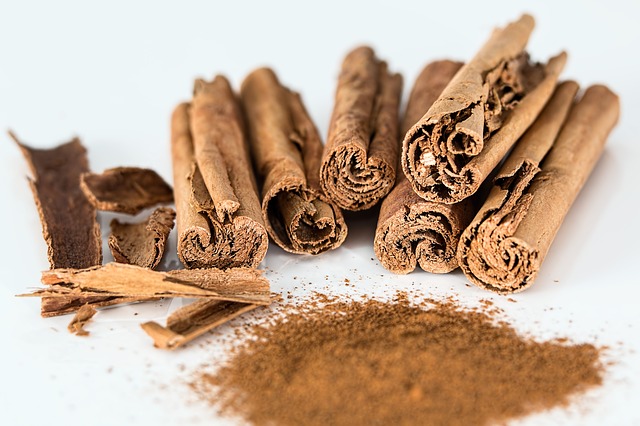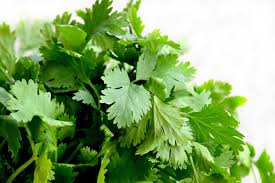7 Herbs for Fall and Winter Ailments


Fall is almost here and, along with our crazy weather patterns, and a resurgence of COVID, it is also often that time of year when we consume more sugar, alcohol and decadent food, and huddle together indoors for holiday celebrations, parties, and family gatherings. The result, unfortunately, is often more exposure to over indulgence, germs and a lowered immune system that can lead to inflammation and sickness. And can winter be far behind?
While we often focus on the value of nutritional foods, we forget about the benefit of powerful herbs that can help our body’s immune system and prevent illness.
Here are 7 herbs that can help us stay strong through the season.
Cinnamon

Cinnamon The smell of cinnamon stirs our senses, but did you know that this delicious spice can also help support healthy blood sugar and cholesterol levels. Recent U.S.D.A. reports demonstrate that extracts of Cinnamon increase insulin activity, enhancing the breakdown of glucose and improving blood sugar concentrations. Women suffering from polycystic ovarian syndrome can also benefit from this wonderful herbal tincture.
In traditional medicine, cinnamon has been used for digestive ailments such as indigestion, gas and bloating, stomach upset, nausea, diarrhea, and painful menstruation. And studies show that it can lower LDL cholesterol and is thought to be a great support herb for heart health. Cinnamon also has a mild anti-clotting effect in the blood and can also have a mild anti-inflammatory effect. It contains anti-fungal properties that have been shown to have the ability to stop medication-resistant yeast infections.
Turmeric

Turmeric has gained popularity in recent years, and for good reason. Turmeric is an overall health tonic for protecting the liver, gallbladder and improving digestive functions, as it stimulates bile flow. It is a powerful anti-inflammatory and antioxidant. Turmeric has been used for the relief of aches and pains of sore joints, arthritis, and rheumatism.
Turmeric is a potent non-steroidal anti-inflammatory that has been very beneficial in the treatment of rheumatism and arthritis. The active ingredient in turmeric, curcumin, has strong anti-inflammatory properties and serves as a powerful antioxidant. When you combine turmeric with cayenne pepper the blend will increase the assimilation in your body dramatically. It is said to curtail inflammation of both osteoarthritis and rheumatoid arthritis and reduces swelling in recent bruises, wounds, and insect bites. Turmeric ls also considered helpful for easing muscle pains and sports injuries, fibromyalgia, tendonitis, carpal tunnel syndrome and bursitis.
Because Turmeric boosts the production of enzymes that digest sugar and fat, it is said to cut fat from the blood and may be helpful in weight loss regimens. Indian healers have used Turmeric for thousands of years in Ayurvedic medicine to control weight problems. For good digestion, Turmeric has a long and venerable history as a warming herb that stimulates the digestive tract. Its mild aromatic properties have been used for thousands of years to stop stomach irritation when not overused. It is also thought to stimulate the appetite and is sometimes used to treat anorexia.
Turmeric is said to improve blood vessel health and stimulate the entire circulatory system. It helps to regulate blood pressure, thereby lessening the risk of heart attack. It is also thought to reduce tissue damage during an attack.
Turmeric is thought to accelerate the detoxification process and stimulate the immune system in the whole body. It is an antiviral and fights viral infection. It is considered an antibacterial and has been known to kill parasites, fight skin infection (acne) and improve the texture and smoothness of the skin. It also enhances the respiratory system and is often used to relieve head colds, sinusitis and coughs, and ease chest congestion.
Ginger

Ginger Have you ever reached for a glass of Ginger ale for an upset stomach? Ginger is a time-honored remedy for upset stomach, indigestion, motion sickness, diarrhea, and cramps and has also been used to help reduce fevers, relieve pain, reduce inflammation, and help remove toxins from the body.
Ginger root is composed of many essential nutrients and vitamins, such as vitamin B-6, pantothenic acid (vitamin B-5), that are required for optimum health. Furthermore, the herb also contains a good amount of minerals like potassium, copper, manganese, and magnesium. Potassium is an important component of cells and body fluids that help to control heart rate and blood pressure.
Ginger has been used throughout the world to treat the common cold, headaches, symptoms associated with viruses and painful menstrual periods, but it.is most acknowledged for its ability to ease nausea or motion sickness. Ginger can help protect us against oxidative stress, and provides powerful anti-inflammatory and antioxidant properties.
Coriander

Coriander is a powerhouse with many benefits for our health. This herb may help lower sugar levels (by increasing enzyme glucose-6-phosphate dehydrogenase activity), improve heart health, and reduce inflammation during various types of cancer treatment.
Coriander is used for the digestive system, treating flatulence, loss of appetite, diarrhea, and colic. It settles spasms in the gut and counters the effects of nervous tension. The raw seed is chewed to stimulate the flow of gastric juices and to cure foul breath and will sweeten the breath after garlic has been eaten.
The fruits (seeds) of this plant are Coriander, while the leaves are known as Cilantro. Cilantro has been found to chelate (remove) heavy metals like mercury, aluminum, and lead from the body. In fact, A researcher, Dr. Yoshiaki Omura, discovered this by accident that this herb is believed to be capable of crossing the blood-brain barrier and removing these metals from the brain in as little as two weeks.
Sage

Sage is a seasonal herb that is a powerhouse of the nutrients chlorogenic acid, Rosmarinic acid, ellagic acid and rutin, that acts as a natural cleanser while normalizing hormone levels and improving oral health. Because sage is known to stimulate the nervous system and digestive tract, it has been used to treat diarrhea, promote good digestion, and is considered one of the best remedies for stomach issues. It can ease gas pains, stimulate the appetite, remove mucus in the stomach and relieve biliousness and dyspepsia so it is said to keep the stomach, intestines, kidneys, liver, spleen, and sexual organs healthy.
Sage is also considered a memory strengthener and an herbal path to good health! Medicinally, it is a powerful antioxidant that can inhibit destructive and harmful free-radical compounds, thus working as an anti-inflammatory to shrink and soothe inflamed tissue.
Sage has been useful in treating intestinal and respiratory infections and been effective in breaking fevers, reducing cold symptoms, treating dysentery and expelling worms and parasites. As an antifungal, it has shown to exhibit anti-yeast activity against Candida albicans; and has been used to assist in healing wounds by protecting against infection and stimulating cell growth.
Used for gargling, it is known as an antiseptic remedy for disorders affecting the mouth and throat, i.e. dental abscesses, infected gums, mouth ulcers, sore and bleeding gums, loose teeth, cold sores, sore throat, tonsillitis and throat infections.
Garlic

Garlic enjoys the reputation as nature’s most potent weapon against germs when it comes to fighting infection. Along with its antimicrobial, antifungal, anti-inflammatory and antioxidant properties, Garlic also may offer cardiovascular benefits, with its antihypertensive effects. It is thought to be a powerful antibiotic that helps to destroy harmful bacteria while leaving behind beneficial bacteria for the body to utilize as an infection fighter. Applied directly to the ear canal, Garlic is a traditional remedy for earaches.
Sulfur compounds found in Garlic are good for the heart, liver, gallbladder, stomach, spleen, and lungs. Garlic Bulb extract detoxifies, even chronic lead poisoning, builds the blood and promotes expectorant action, making it useful for chronic bronchitis.
Garlic Bulb has been used for chronic stomach problems, and stomach catarrh and has been found to be useful for intestinal infections, such as parasites, dysentery, cholera, typhoid, and parathyroid fever.
Garlic contains the compound allicin, which not only gives its odor but its benefits as well. Research has suggested that Garlic bulbs increase overall health by reducing cholesterol and blood pressure and relaxing of the artery walls, so blood can flow freely without constriction. Thus, reducing the tendency of the blood to clot, while reducing blood pressure and the risk of arteriosclerosis, stroke, and heart attacks.
Garlic is said to stimulate the lymphatic system to throw off waste materials and strengthen blood vessels, providing protection against pollutants and heavy metal toxicity. It is believed to cleanse the kidneys and increase urine flow by relaxing the blood vessels. This improves the circulation of the kidneys and prevents the formation of stones while urinary oxalate and flush out small stones. As a bonus, by increasing metabolism, fat is released from the body’s cells faster which may lead to weight loss.
Garlic is thought to be one of the best choices for killing and expelling parasites such as pinworms, from the human body. It has also been shown to inhibit the growth of bacterium implicated in the formation of ulcers in the digestive system (peptic ulcer), while enhancing good digestion, increasing bile production, and reducing stomach gases.
Garlic is thought to support healthy blood-sugar levels in late-onset diabetes, as it helps regulate blood-sugar levels by tying up the chemical receptors that would otherwise deactivate insulin, the hormone that controls sugar usage and stimulates the pancreas to secrete insulin.
Echinacea

Echinacea At the first sign of a cold or other viral infections, fever, earache, or whenever antibiotic action is required, take Echinacea. It has been used to help treat and shorten the common cold and ease flu symptoms. One of Mother Nature’s most powerful natural antibiotics, Echinacea, is especially good for cleansing the lymph system and the glands in the treatment of strep throat, swollen glands, prostate problems, sore throat, ear infections, and tonsillitis, upper respiratory tract infections, and in cases of bronchitis. Echinacea is an anti-inflammatory that may relieve symptoms of chronic fatigue, reduce pain and swelling from injury and combat inflammation.
Echinacea combined with honey is particularly effective for the treatment of vitamin deficiency, severe headache, chronic fatigue, high blood pressure. This mixture normalizes sleep, calming the nervous system and when taken regularly may help with epilepsy, hyperactivity, atherosclerosis, improve vision and memory.
Considered an antiviral and antibacterial, Echinacea not only kills bacteria and viruses but also actually strengthens immunity by increasing the number and activity of immune system cells in the bloodstream and helps white blood cells attack germs. Echinacea is not an everyday tonic. Rather, it should be used when your body really needs it. Applied topically, it helps to heal skin infections, psoriasis, eczema and other inflammatory skin conditions, wounds, cuts, burns and insect bites. However, those who regularly encounter sick people on a regular basis, such as nurses, doctors, and other health professionals, may benefit from taking a daily Echinacea supplement, especially when there are a lot of viruses about.
It is an excellent lymphatic tonic, cleansing the system of toxic materials, and it can be particularly helpful in cases of swollen glands and enlarged prostate. Further supporting Echinacea’s role as a depurative, or agent that tends to cleanse and purify the blood by killing contaminants in the blood, the herb is believed to be effective in the treatment of blood poisoning and septicemia.
Chronic fatigue syndrome may also be helped with the powerful extract, according to recently established Echinacea facts. By boosting the immune system, it may be possible for Echinacea to cure the persistent exhaustion of chronic fatigue syndrome by destroying any stray virus which has been linked to the disease.
Echinacea Purpurea is said to promote good digestion and help with flatulence. It also cleanses the stomach and helps to expel poisons, toxins and abscess formations in the body, such as gastric ulcers. As a sweat-producing agent, Echinacea even slows down the aging process. It beautifully cleanses wastes and detoxifies through the skin, rejuvenating the entire body. Echinacea should only be taken for a month and then take a break for a month, allowing the body to put its immunity into full force.
Echinacea Purpurea is believed to promote tissue regeneration. Torn ligaments also respond well to the plant, and it is often used in healing salves in combination with St. John’s Wort for scarring from surgery and other wounds. Used both internally and externally, Echinacea’s effects as a healing herb for all types of skin problems and infections are said to be legendary, helping to ease cuts, cold sores, boils, carbuncles, acne, sunburned skin, infected or weeping eczema, plant poisoning (ivy, etc.), herpes lesions and other infected skin conditions, even gangrene. By aiding in the prevention of any potentially dangerous bacteria, Echinacea allows the body to focus more on healing the wound than stopping infections quickly.
Take comfort in knowing that you can protect yourself, naturally, from the Fall and Winter conditions that make us more susceptible to seasonal ailments.
Tags: cinnamon, colds, coriander, covid, echinacea, Echinacea Pupurea, fall, flu, garlic, sage, turmeric, winter
Comments are closed here.